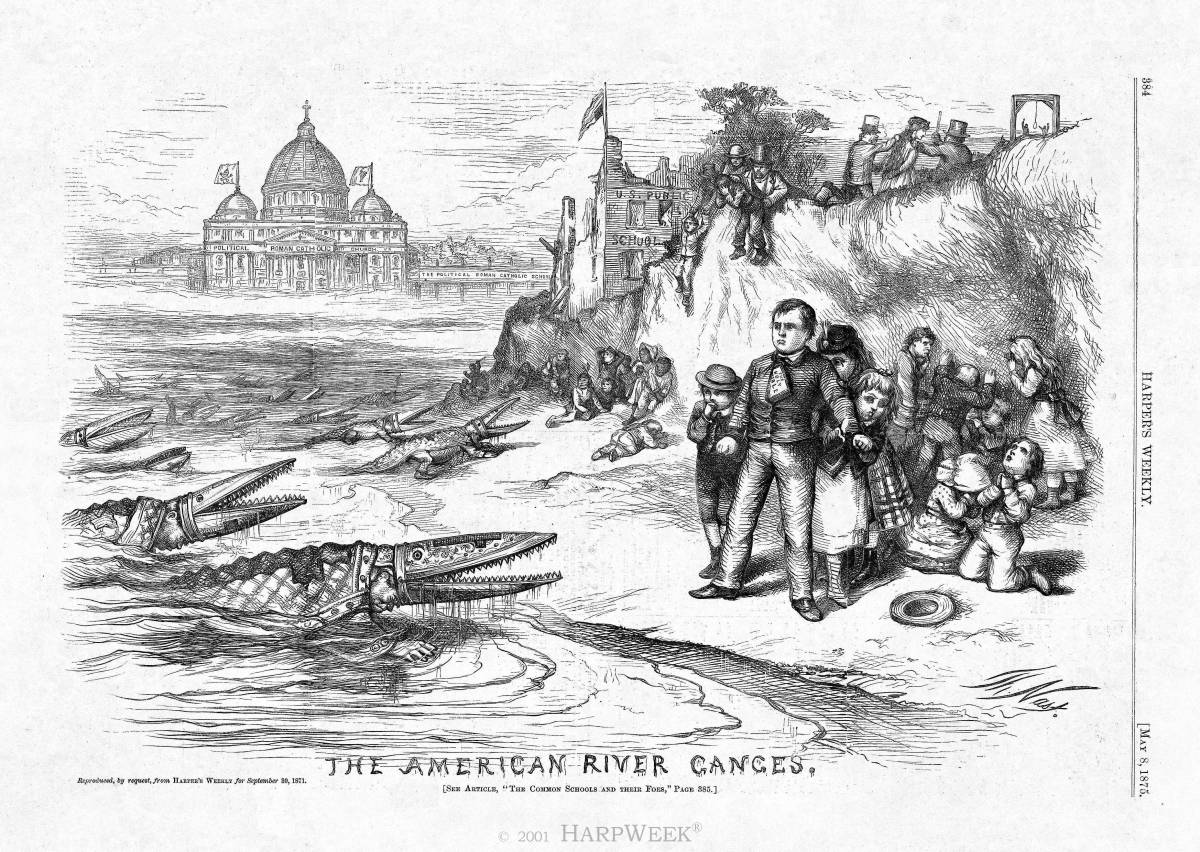 As most readers here know, the belief held by some churches that the pope is the Anti-Christ is not new. And as my colleague Tim O'Brien, S.J., noted today, it's not going away anytime soon. While the president of the Wisconsin Evangelical Lutheran Synod (better known as "Michelle Bachman's church") argues that the belief doesn't make them anti-Catholic, 19th-century Nativists didn't care to make that distinction.
As most readers here know, the belief held by some churches that the pope is the Anti-Christ is not new. And as my colleague Tim O'Brien, S.J., noted today, it's not going away anytime soon. While the president of the Wisconsin Evangelical Lutheran Synod (better known as "Michelle Bachman's church") argues that the belief doesn't make them anti-Catholic, 19th-century Nativists didn't care to make that distinction.
As Dan Connors, editor in chief of Catholic Digest, notes in a recent article:
[In 1875], cartoonist Thomas Nast turned the miters of bishops into crocodile mouths as the bishops—with the bodies of crocodiles in his cartoons—swarmed ashore to destroy America. (see right)
Connors continues:
Even as late as 1928, when New York Governor Al Smith ran for president, some Protestant groups feared that if Smith were elected, the pope would move to Washington and control the country. There were even groups in the 1920s who warned that the Holland Tunnel, then being dug from New York to New Jersey, was actually going from New York all the way to the Vatican, allowing the pope to enter America unseen.
Right. Because that's logical. Everyone knows the pope would have waited a few years so he could take the George Washington Bridge.
Connors also points to a fabulous piece from a Nov. 1948 issue of Catholic Digest, which includes a crazy-but-true story about Pope Pius IX and the Washington Monument. In 1853 Pius IX sent a block of marble from the Temple of Peace to be included in the Washington Monument, which was, after a bit of a struggle, finally under construction thanks to many private donations. The gift reached the U.S., but what happened afterward involves several anti-Catholic thieves, the Potomac River, and a two-decade delay in the completion of the monument. It's well worth a read. You can find a PDF of the original piece here.








Of course, as you point out, the bigotry of the former often melded into the latter.